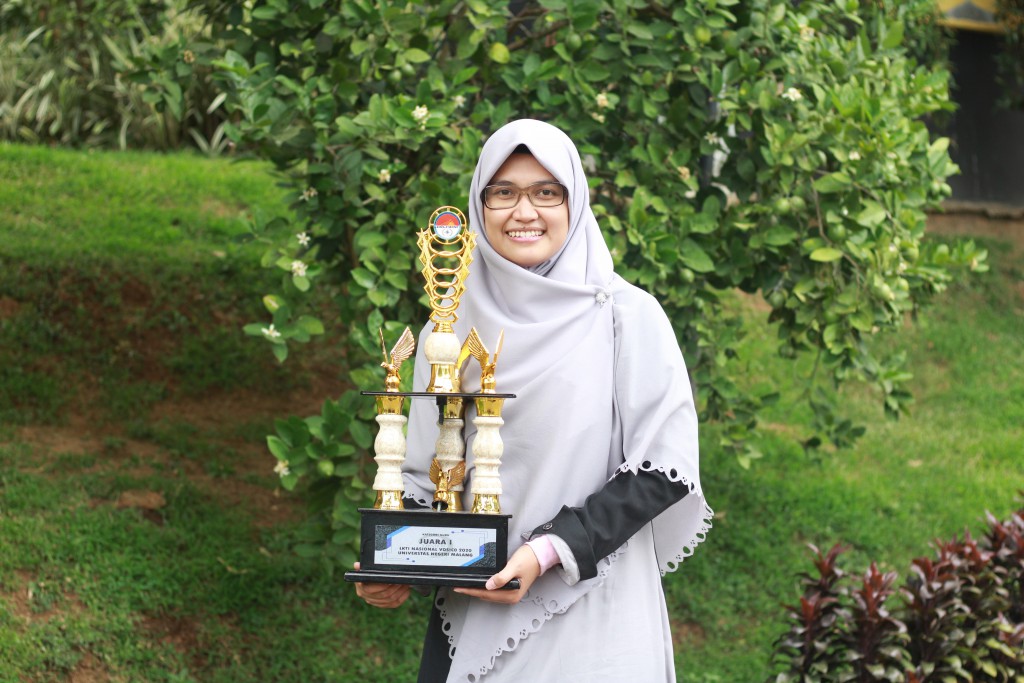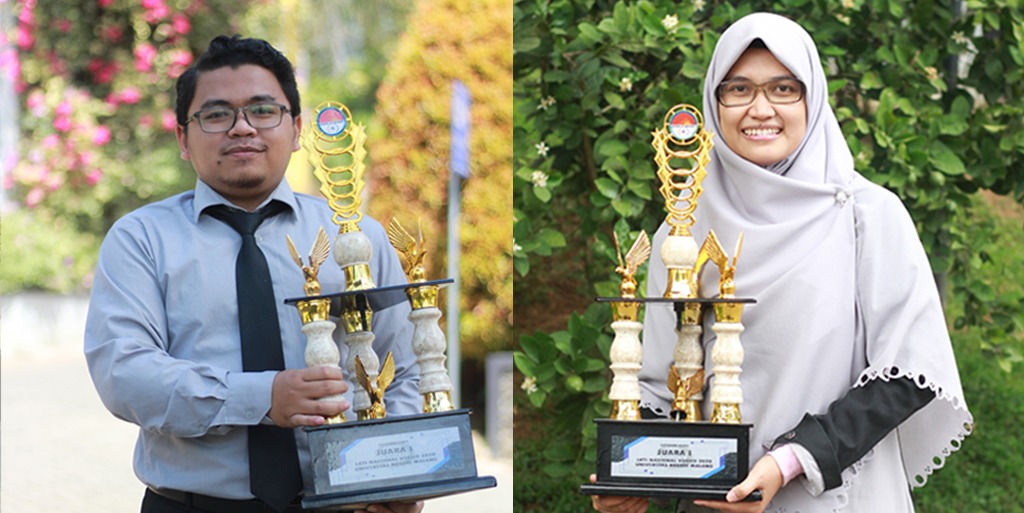Promoting Waste Treatment Ideas, Teachers of Tazkia IIBS Won in National Scientific Writing
Beginning from an interest in environmental problems, teachers of Tazkia International Islamic Boarding School (IIBS), Ustadz Maulidan Asyrofil Anam and Ustadzah Ratu Fatimah decide to research further about utilisation of waste molasses. The work took a part in National Scientific Writing Competition (LKTIN) Vosico 2020 held by Student Association of Geography of Public University of Malang. Following long selection process, from February to April 2020, both teachers succesfully won the first place.
Ustadz Asyrof explained that the inspiration of researching about molasses coming from his finding that molasse resulted from sugar factory only utilised for making alcohol. Molasses is a byproduct of the sugar processing industry which still contains sugar and organic acids known as molasses. Produced by sugar factories, it is often disposed of as waste which can certainly disturb the aquatic ecosystem.
"We are trying to study the content of molasses and formulate the use of molasses into new materials that have better economic, nutritional, and sustainable environmental value, "he explained. After passing the selection stage for Abstract, it took couple months for them to carry out the research and writing the full paper. Afterwards, in the final round, they presented the result of the research by sending the presentation video to the judges. Finally, the team of Tazkia IIBS won the first place and beat the other nine teams, passing the final round.


Through this paper, Ustadz Asyrof and his team try to make molasses waste produced by sugar factories as raw material for producing vitamin B2 using the Bacillus Subtillis bacteria through a fermentation process. This is because not many researchers or industries have used molasses waste as a raw material for making vitamins. "In fact, the sugar content in molasses is quite high and allows it to replace ribose sugar which is usually used as a raw material in the chemical synthesis process of vitamin B2, "he said.
Vitamin B2 itself is a compound that is widely used in human life, including in the livestock industry, disease therapy, and certainly as human nutrition. Therefore, in line with the high number of human population, it is estimated that the need for Vitamin B2 will continue to increase each year.
Basically, vitamin B2 is much found in green vegetables, dairy products, eggs, and meat. Even so, it can be produced commercially by a chemical synthesis process. However, developments in food technology have replaced this chemical synthesis process with a fermentation process. Apart from being more economical, this process is also considered to be more environmentally friendly as well as producing good quality of Vitamin B2 products.
Teacher who also serves as the supervisor of internal student organization hopes this achievement can trigger Tazkia academic community to develop themselves. Not only in the fields of research and scientific writing, but also in their respective areas of interest and expertise. According to him, independent learning is not only for students, but also for educators. So as educators, it is necessary to continue to liberate ideas, creativity, and innovation for mutual benefit.
"Work is like sunnah, it is not if you have time but taking time. After hard effort, the rest is tawakkal," he closed.
